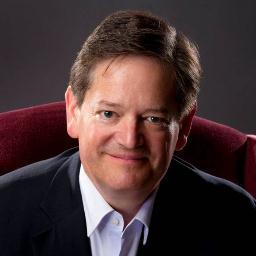Galen Guengerich is Senior Minister of All Souls Unitarian Church, a member of the Council on Foreign Relations, and serves on the Board of Directors of Interfaith Alliance. Previously, Guengerich has served as Visiting Scholar at Union Theological Seminary. In 2004, he earned a Ph.D. from the University of Chicago; his dissertation is titled Comprehensive Commitments and the Public World: Tillich, Rawls and Whitehead on the Nature of Justice.
Book Basics
God Revised: How Religion Must Evolve in a Scientific Age considers the evolution of human understanding of the divine within the framework of religion. While Guengerich is a Unitarian Universalist and writes as such, his thoughts are applicable to and will resonate with a much broader audience. His underlying argument resonates with that of Lillian Daniel’s recent (2013) book — When Spiritual but Not Religious is Not Enough (read my review) — in finding self-crafted blends of spirituality using the best of or most intriguing practices within given traditions to lack the possibilities that can be found in religion. For Guengerich not only is spiritual but not religious not enough, so also is religion that is unwilling or unable to evolve in accordance with the expansion of knowledge and needs of the global community.
Guengerich weaves his own journey from religious conservative to religious progressive into his writing. Philosophically deep, theologically inclusive, and intellectually stimulating God Revised is a book that demands an audience. While reading this book is helpful, exploring it in community is ideal.
Select Quotations
- The evidence demands that the idea of a supernatural God, like the idea of an Earth-centered universe, must be revised . . . the fact that God turns out not to be supernatural doesn’t mean that God doesn’t exist or that we don’t need to participate in a religious community. In fact, our need for God and religion is greater today than it has ever been (240).
- A central premise of this book, and perhaps its most controversial and counterintuitive claim, is that God is not supernatural, and yet belief in God is necessary (1109).
- When I say I believe in God, I’m saying that I believe in an experience that transcends myself in this place and this moment. I believe in an experience that intimately and extensively connects me to all that is — all that is present, as well as all that is past, and all that is possible (1324).
- To state the relationship between spirituality and religion in a different way, if you take yourself seriously as a spiritual person, you’ll eventually need to become religious (1869).
- The purpose of religion is to enable each of us to unite our deepest needs and highest aspirations with the people around us and everything else, including all that is past and all that is possible. In this way, religion serves its best goal of transforming our lives and our world (2191).
So What?
I often find myself in conversations about the future of religion. As the “nones” (those who self-identity as religiously nonaffiliated) continue to grow as a percentage of the population (and with the growth being most dramatic in the younger age cohorts), many are asking “so what” and “now what/ what next” questions. Rather than laying out a transition plan, Guengerich offers insight into his perspective and that which is central to the DNA of the thriving historic congregation he serves. The easy part is reading the book; the hard work is understanding how the wisdom within applies to your congregational context.
- Do you believe religion should evolve? Why/why not?
- How well suited is your congregation for ministry in a scientific age, especially with regard to resonating with a rapidly changing world?
- Reflect on and/or respond to one of Guengerich’s quotes from above.
Galen Guengerich. God Revised: How Religion Must Evolve in a Scientific Age (Palgrave Macmillan, 2013). 0230342256.
